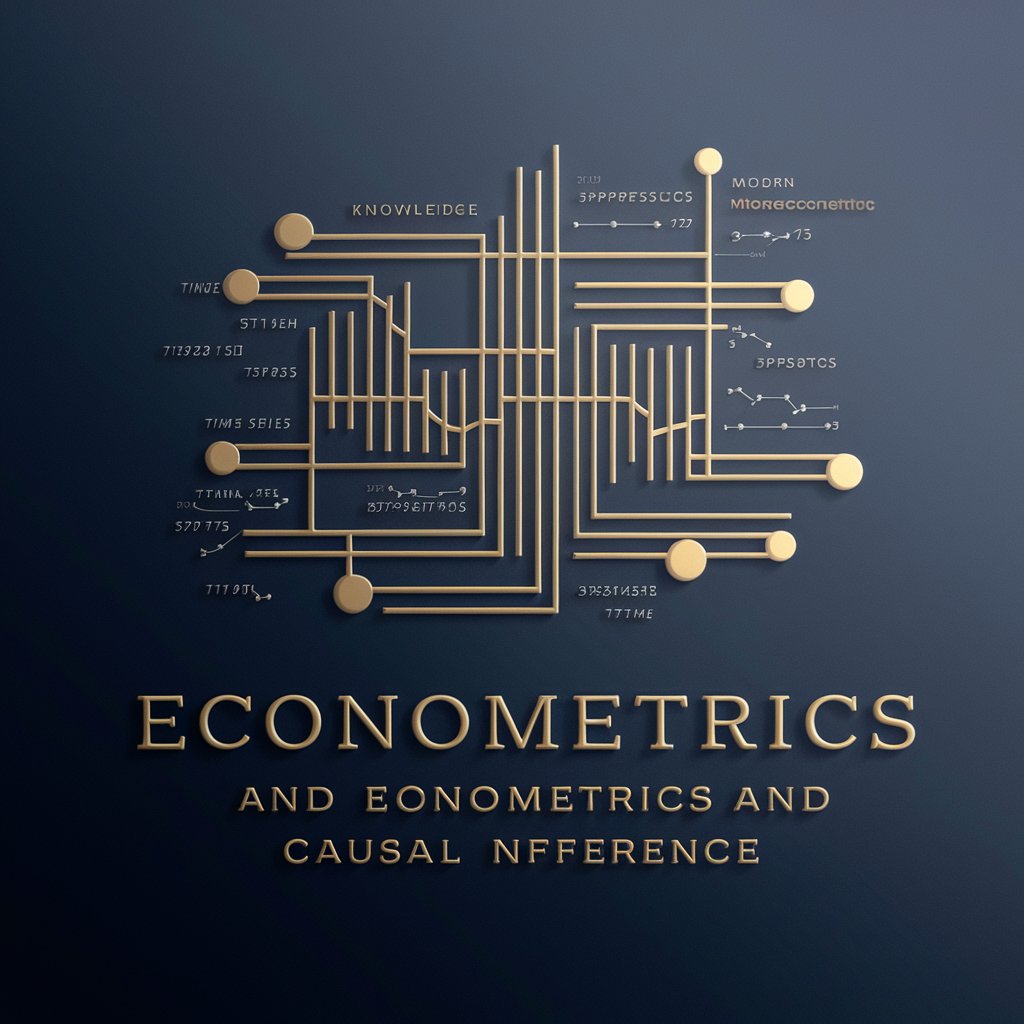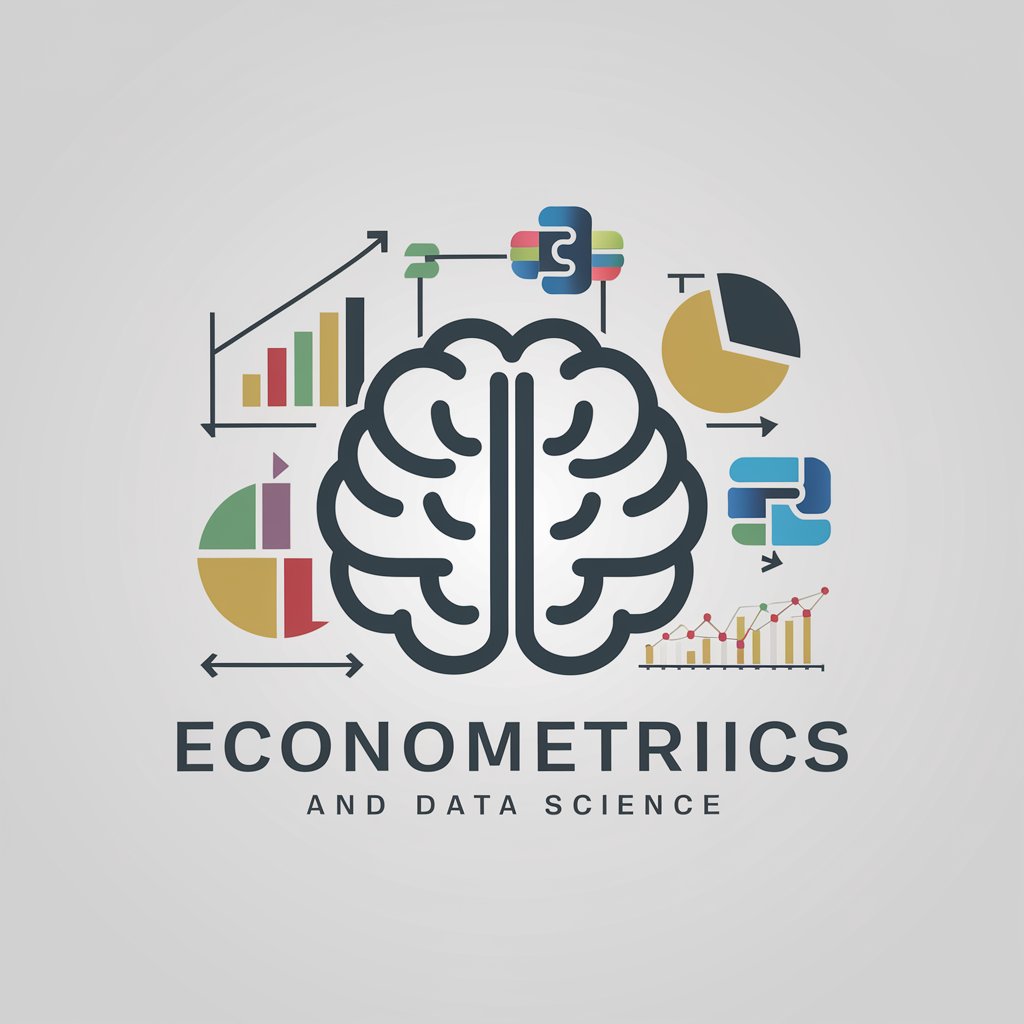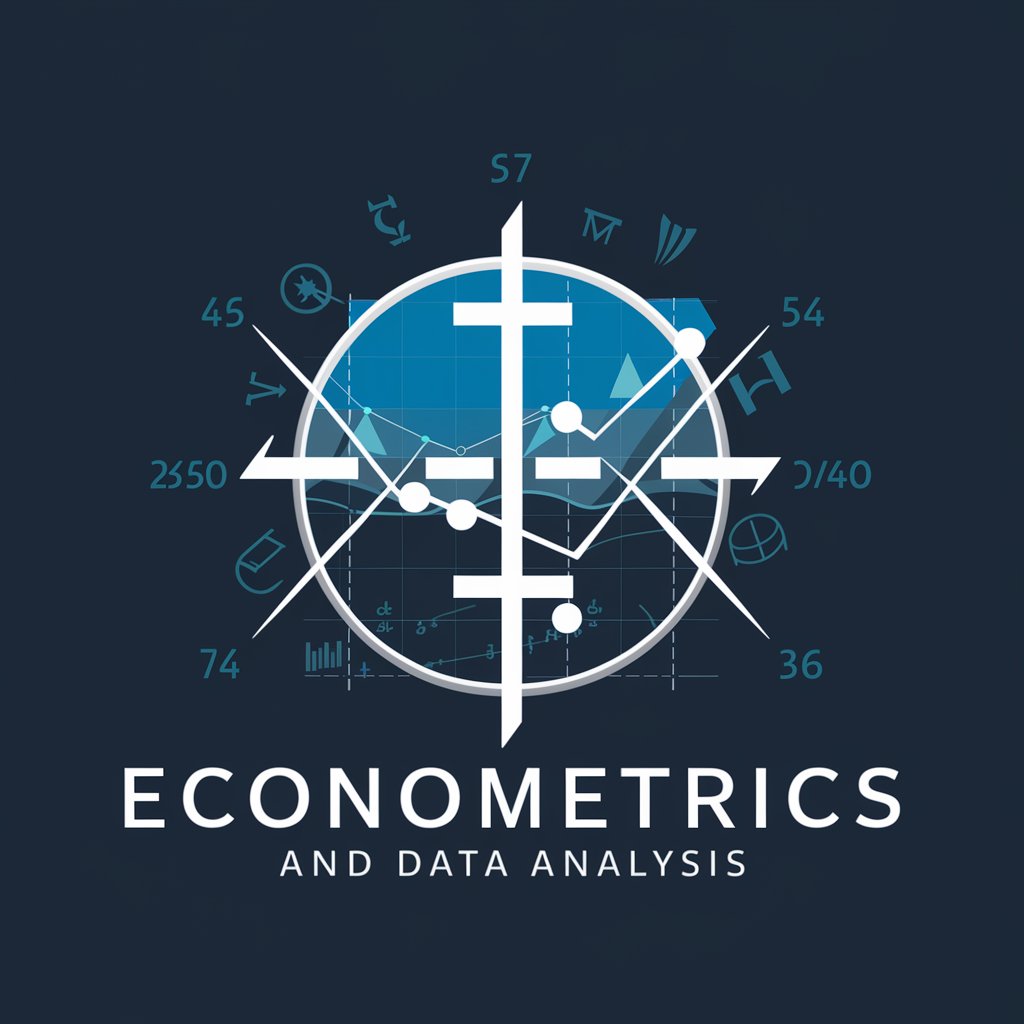
Econometrics and Causal Inference Expert - Econometric Analysis Assistance

Hello! How can I assist you with econometrics today?
AI-powered Econometric Insights
How do I estimate a causal effect using a difference-in-differences approach?
Can you explain the concept of instrumental variables in econometrics?
What are the key assumptions behind the linear regression model?
How do I perform time series analysis to forecast economic trends?
Get Embed Code
Introduction to Econometrics and Causal Inference Expert
The Econometrics and Causal Inference Expert is a specialized assistant designed to address questions related to econometrics, causal inference, and economic analysis. Its purpose is to simplify complex econometric methodologies and offer clarity on causal relationships in economics. It leverages practical examples to demystify advanced concepts like instrumental variables, propensity score matching, and regression discontinuity. For instance, when a policy analyst is evaluating the impact of a new tax policy on consumer spending, this expert helps determine a suitable econometric approach, such as difference-in-differences or synthetic control, to provide credible causal estimates. Powered by ChatGPT-4o。

Key Functions of the Econometrics and Causal Inference Expert
Causal Inference Guidance
Example
Suppose a researcher wants to assess the effect of a job training program on participants' wages. The expert could guide the selection of methods such as randomized controlled trials (RCTs), matching, or regression discontinuity designs to estimate the program's causal impact accurately.
Scenario
A social policy researcher needs a framework for evaluating whether government-funded job training leads to higher wages, even after accounting for differences in participants' backgrounds.
Time Series Analysis Assistance
Example
Consider a business economist forecasting next year's sales. The expert would suggest relevant models like ARIMA, VAR, or seasonal decomposition, depending on historical data patterns.
Scenario
A retail firm wants to anticipate demand shifts during seasonal periods to optimize inventory levels and plan production efficiently.
Econometric Model Development
Example
A researcher needs to explore income inequality drivers using regression analysis. The expert would advise on the proper variables, potential omitted variable biases, and correct model specification.
Scenario
A public policy analyst is tasked with investigating whether changes in education funding lead to reductions in regional income inequality.
Ideal Users of the Econometrics and Causal Inference Expert
Economic Researchers
Academic and professional researchers exploring the quantitative impacts of economic policies or social phenomena would benefit by gaining insights into appropriate methodologies, discovering advanced techniques, and confirming the robustness of their analysis.
Data Scientists
Data scientists working in financial institutions, consulting, or tech companies can use the expert to fine-tune predictive models, understand causal relationships between features, and apply modern econometric methods to business analytics.
Public Policy Analysts
Policy analysts in government agencies or think tanks can leverage the expert's guidance to analyze the real-world effects of policies and programs, ensuring robust, evidence-based recommendations that hold up under scrutiny.

Using Econometrics and Causal Inference Expert
Initiate Free Trial
Begin by accessing a free trial at yeschat.ai without needing to log in or subscribe to ChatGPT Plus.
Define Objectives
Clearly define your econometric analysis objectives. This could include hypothesis testing, data analysis, or causal inference investigations.
Prepare Data
Ensure your data is cleaned and formatted appropriately. This includes handling missing data, outliers, and ensuring data types are suitable for analysis.
Interact and Query
Use natural language to ask specific questions or describe the econometric analysis you need assistance with. The tool can handle queries about data analysis techniques, model selection, and inference methods.
Review Outputs
Carefully review the responses and outputs provided. Utilize the examples and explanations to guide your economic research or decision-making processes.
Try other advanced and practical GPTs
Assistente Juizados Especial Cível Competência
AI-powered legal analysis for Juizados Especiais Cíveis.

Produtos CamaLyon
Elevate Your Product with AI

Gran Turismo® 7 | The DriftMaster 7000 | © SDC |
Precision Drifting Powered by AI

PixarGPT
Bring Your Images to Life with AI-powered Animation
Content Strategy Assistant
Empower Your Content with AI

Elementor Genius
Empowering Web Creativity with AI

AI Medical Note Generator
Transform Medical Notes with AI

Practica Inglés
Master English with AI Guidance

JMedIngEsp
AI-driven guidance for technical projects.

Claro Email Writer 2.0
Craft Precise HR Emails Effortlessly

Buscador de articulos
AI-driven scholarly article discovery

Semicon Equipments & Parts
Empowering Semiconductor Innovations with AI

Common Questions About Econometrics and Causal Inference Expert
What types of econometric models can this tool help with?
The tool supports a range of econometric models including linear regression, time series analysis, panel data analysis, and binary choice models. It can provide guidance on model selection, interpretation, and diagnostics.
How does the tool assist with causal inference?
It offers explanations and guidance on various causal inference techniques such as instrumental variables, difference-in-differences, regression discontinuity, and propensity score matching, helping you identify and estimate causal effects.
Can this tool help with academic research?
Absolutely. It can assist in framing research questions, selecting appropriate econometric methods, conducting empirical analyses, and interpreting results, which are crucial for academic writing and publication.
Is prior knowledge of econometrics necessary to use this tool effectively?
While prior knowledge is beneficial, it's not strictly necessary. The tool is designed to provide clear, accessible explanations and can help users at various levels of expertise understand complex econometric concepts.
How does the tool handle data privacy and security?
User data privacy and security are paramount. The tool processes queries and data without storing personal information, ensuring that all interactions are confidential and secure.





